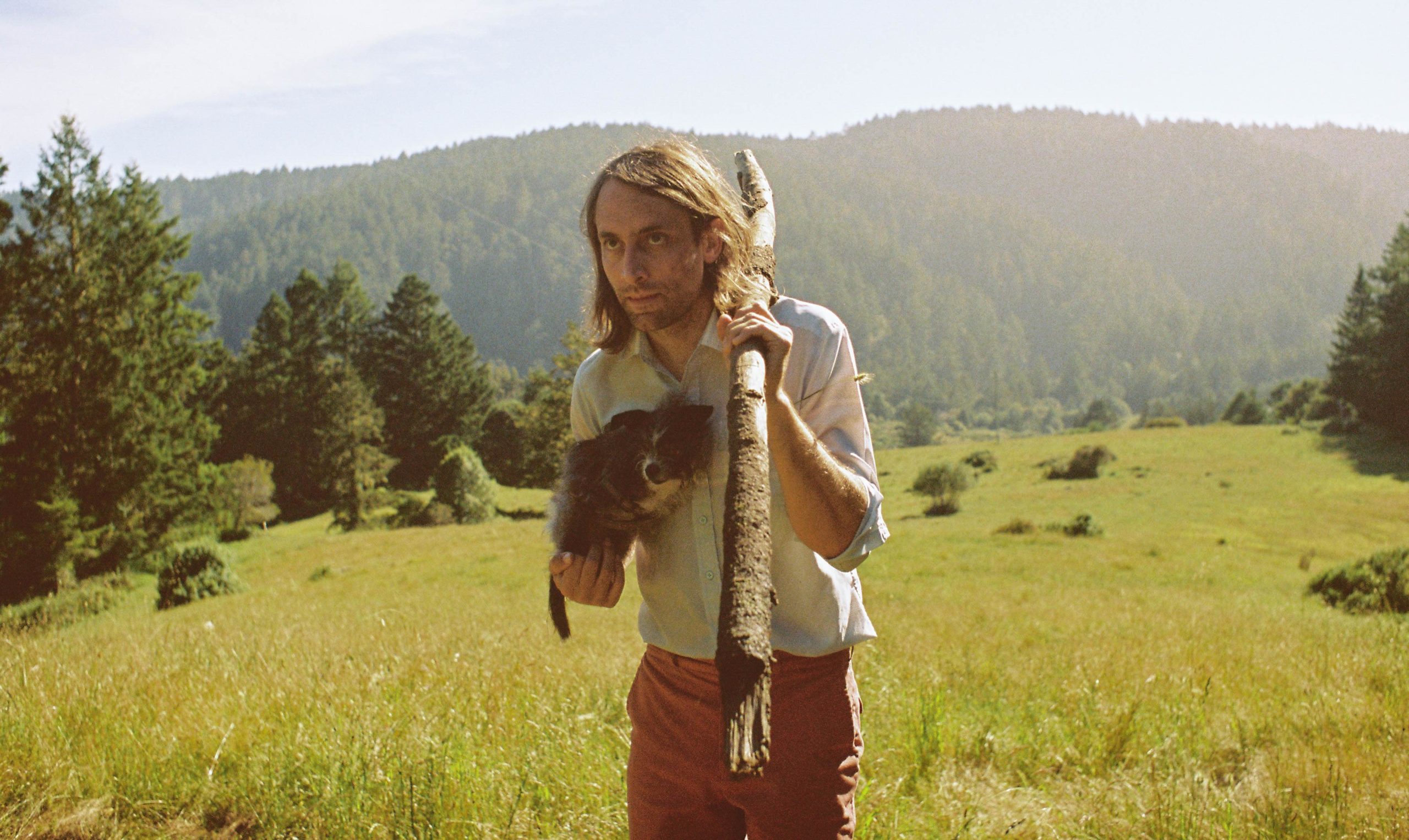The World Only Ends When You Die, the existentially titled new “cosmic Americana rock opera” from Oakland songwriter Skyway Man, is a lot to take in. Even before you toss in the ten James Wallace–designed illuminated manuscripts corresponding to each of the record’s tracks, the project emits Codex Seraphiniaus vibes in its complexity and intriguing artwork (designed by Kevin Hooyman)—that is, until you actually spin the record, which could be considered easy listening outside of its context.
Blending psych and country and folk and lots of other stuff, World Only Ends distills heavy concepts like death into soulful, feel-good jams even bordering on gospel music (particularly on the second track, which is based on a particular gospel tune). With the record finally streaming today, we asked the artist himself to talk us through each of these ten songs—listen along to the record below, which officially drops tomorrow, and read on for context and Wallace’s accompanying story.
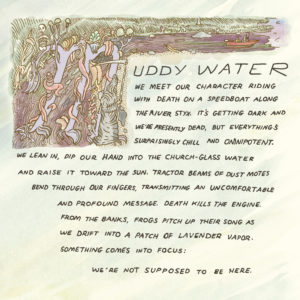
1. “Muddy Water”
Got the vibe of it in my head after riding my bike home along the Cumberland River Greenway in Nashville stoned after a Rolling Stones concert. My dream was for it to be a transcendental swamp ride. That’s kind of what kicked off the whole River Styx theme of the album.
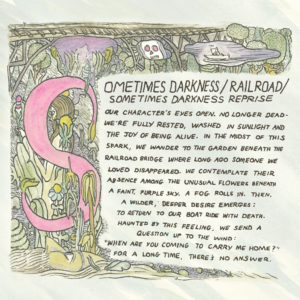
2. “Sometimes Darkness / Railroad / Sometimes Darkness Reprise”
Blind Roosevelt Graves did a version of “Woke Up This Morning (With My Mind on Jesus)” that never left my head for a time when I needed a power mantra to get me through a dark spell. I bent the lyrics to something that summed up that time period.
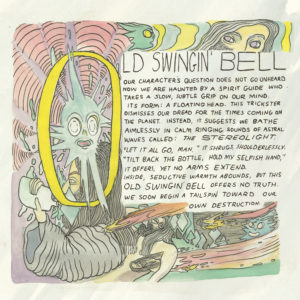
3. “Old Swingin’ Bell”
Rev. Anderson Johnson wrote this song (I think) about struggling to find unity within his own Christian community in the ’50s. I suppose I wrote a slightly different song about me desperately starting my own religion in the aftermath of a dying national dream.
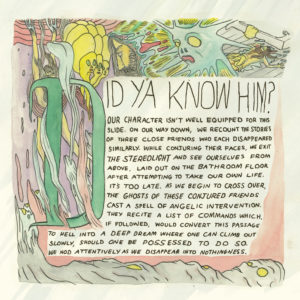
4. “Did Ya Know Him?”
The sound for this song started with an obsessed period with Boney M. It felt like a fun, high-stakes challenge to pull off disco reggae. It seemed like it could work against the dark suicide and war themes as a kind of celestial message for lost souls. Eventually, the band grounded it a bit more in the Chuck Berry first wave feel it needed.
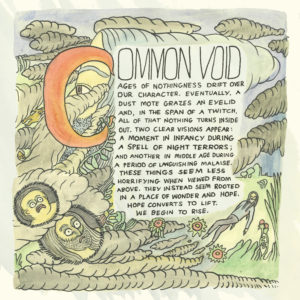
5. “Common Void”
This was probably the first tune I wrote completely after my dad passed away. For some reason, my body felt way older a couple of years ago than I do now.
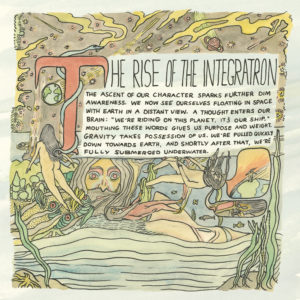
6. “The Rise of the Integratron”
As a rule, the instrumental tracks on my albums are gratuitous travel montages that, when strung together, form their own mini-quest. 1. Traveling to the rock. 2. Laying upon and celebrating the rock 3. Transcending to space. This is the third one. I went for a full-on Kubrick slit-scan.
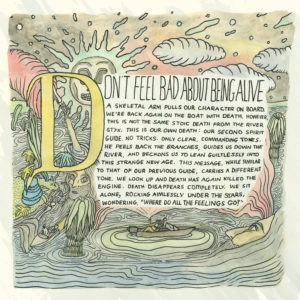
7. “Don’t Feel Bad About Being Alive”
Someone came up to me after a show. I think they were trying to tell me that I made them feel something, but they said, in earnest, that I made them feel bad about being alive. I felt a strange urgency to write a song with those words in it, but turned around.
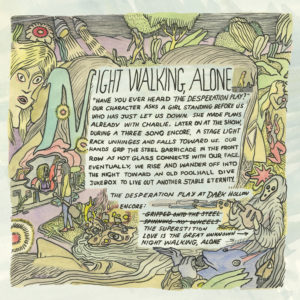
8. “Night Walking, Alone”
Inspired by a fictional band with the same name drawn originally by Kevin Hooyman (who did all the album art). The first lines came to me while feeling a comical amount of classic American romance while driving a van around Nashville delivering flowers on Valentine’s Day for the fifth year in a row.
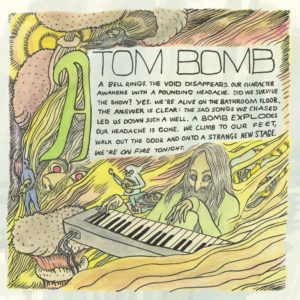
9. “Atom Bomb”
This is a weird little palette cleanser for the album. Something brazen and short to shake off the excess.
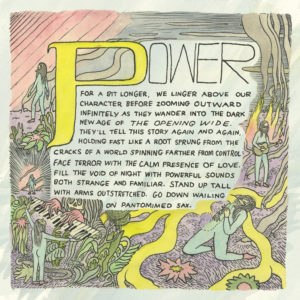
10. “Power”
Like all the other gospel tunes I reimagined on this album, the only important versions are the originals. I would like to make that point especially here. Brother and Sister W.B. Grate made the only version of this song that matters. Mine is just as if I heard it through an AM radio after the apocalypse and needed to add some words for the pack of climate refugee scavengers dancing in the warehouse to latch onto. It feels to me like the most hopeful song on the record, and still one of the boldest gospel tunes I’ve ever heard.

